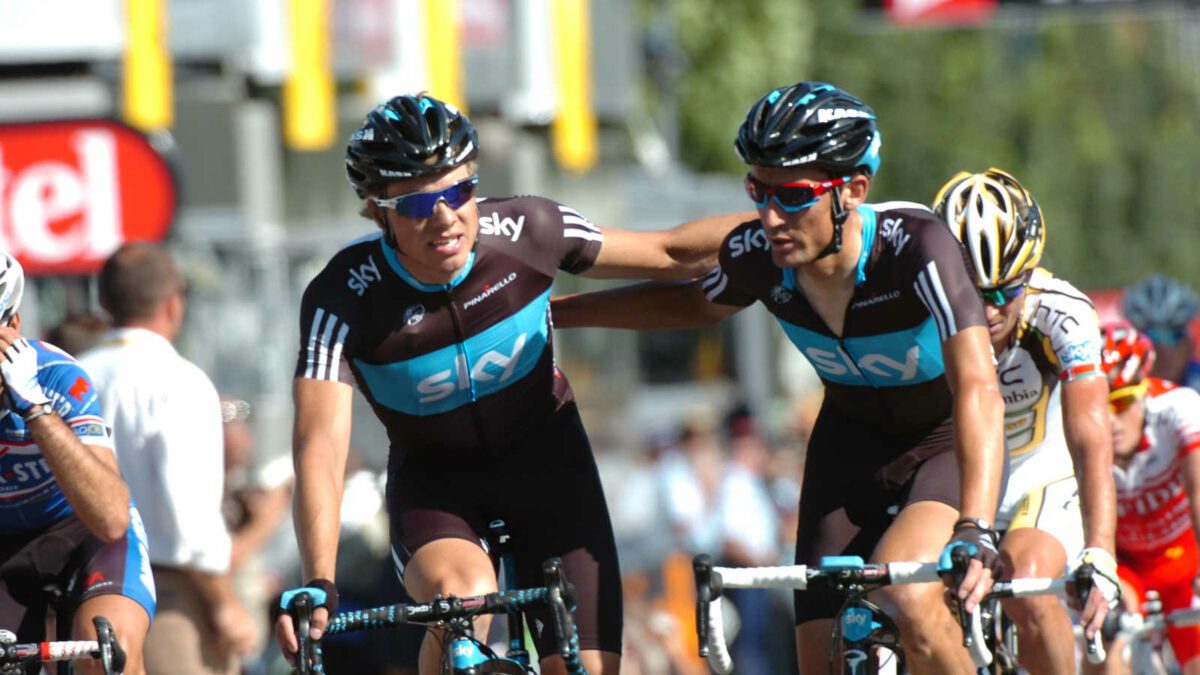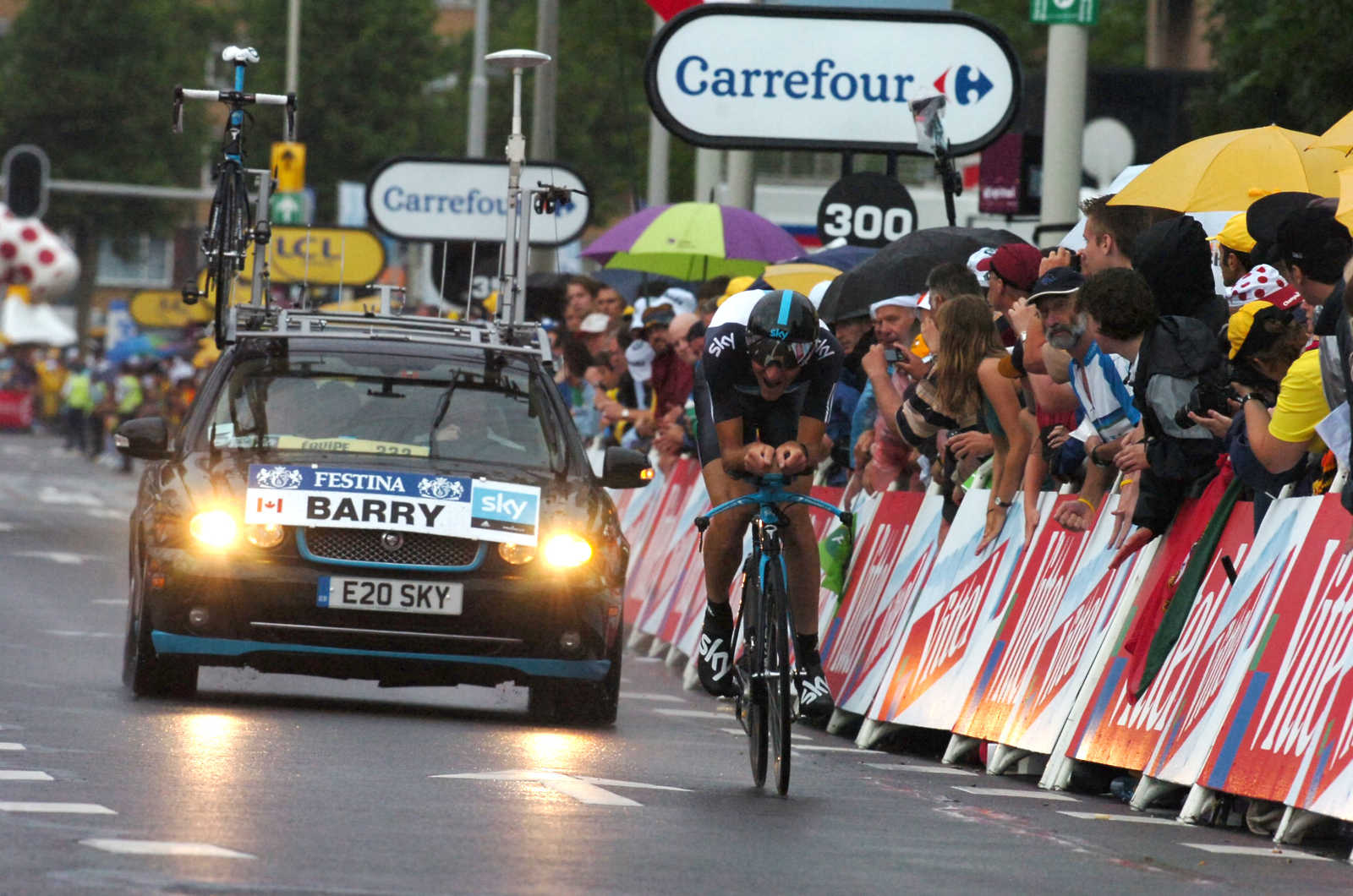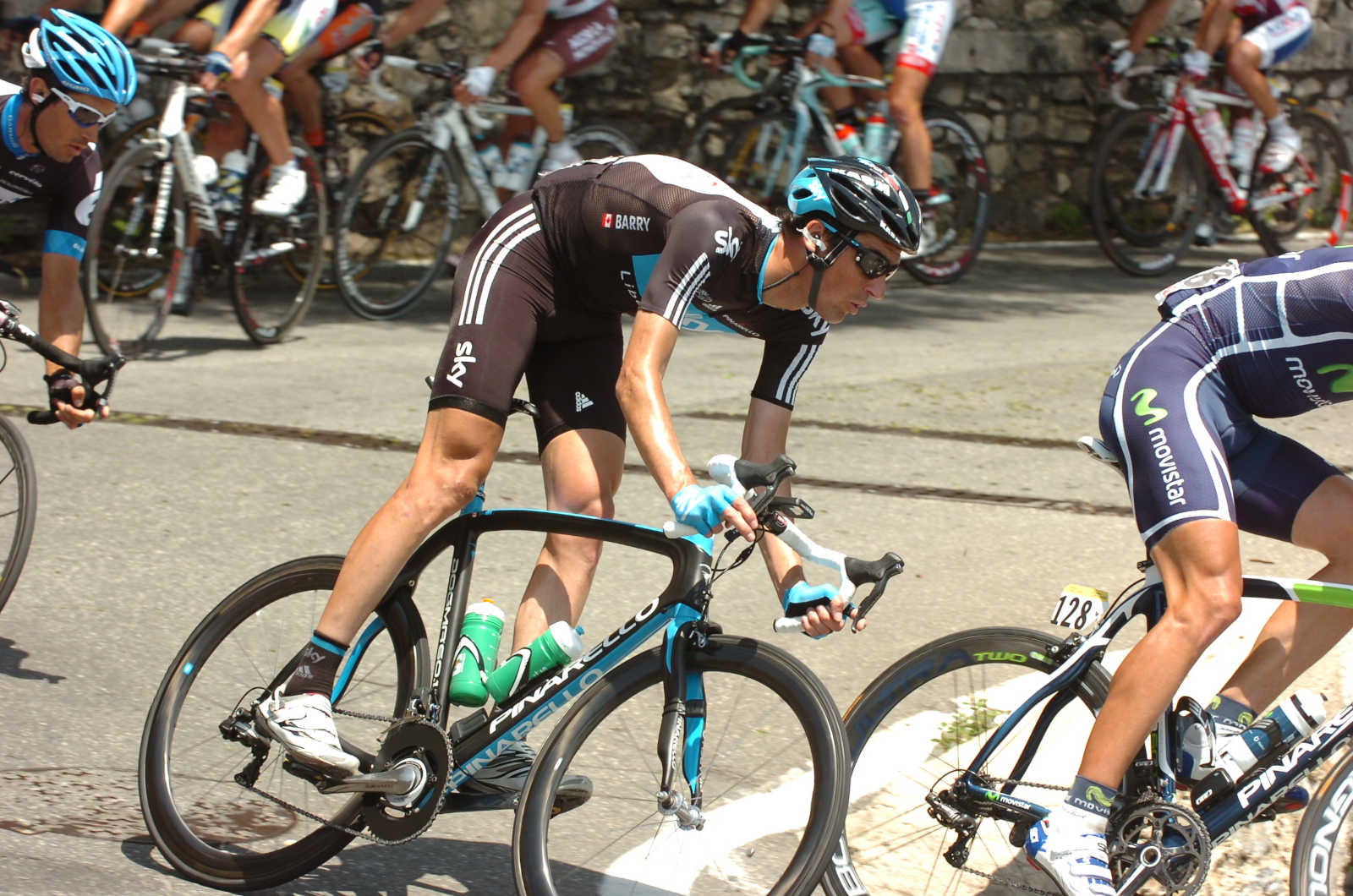A rider’s long wait for the Grand Départ at the Tour
Michael Barry says the days before the start of the race seem to take forever
 Photo by:
Sirotti
Photo by:
Sirotti
A professional cyclist’s longest days of the season are often the few days before a Grand Tour, where they sit around a hotel, often in a sleepy suburb or business park hotel, waiting for the race to start.
For months, they have been preparing for the race, everything is in place, their fitness is at or near a peak, and their minds are focused on the objective. When they are not out for an easy spin with the team, or at a presentation or news conference, they are in a small hotel room, staring at the ceiling, scrolling through their phones, watching films, reading a book, and generally trying to pass idle time by keeping their minds off the race.
Waiting for the Grand Départ at the Tour
Nerves of anticipation bubble within each rider. Even though teams try to control every variable, it is the remaining unknowns that can be haunting. Illness or injury can end a race. And no rider knows whether their fitness will be enough to win, to do their jobs, or for some, even finish. They all know they will suffer, regardless of whether they are at the front of the race or the back.

While rooming with Matt White for several Vueltas, one of our pre-race routines was to go through the race book, scanning the stages and classifying them on difficulty, striking out the ‘easier’ days and counting the big mountain stages, where we knew we would suffer. Of course, we knew that there are rarely any easy days, especially when you’re working as a domestique for a potential race winner, but somehow it put our minds at ease knowing there might only be four or five ‘hard’ days over the three weeks.
Riders are required to be at the race starting point three days before it begins, making the three-week race almost a month away from home, if you include the mid-race rest days. Depending on the first stage, whether it is an individual time trial, team time trial, or mass start race, the riders will preview the courses, riding the bikes on which they will race to hone their positions and analyze the technical aspects of the course.
New kit(s) day
Often, and especially at the start of the Tour de France, teams will introduce new jerseys, glasses, bikes, or equipment. Some teams will sign up new sponsors for the race, while others will mark the race with a unique jersey. Teams with similar colors to the race leader’s jersey will be required to change color. At the Giro d’Italia, where the leader’s jersey is pink, EF adds yellow to their pink jerseys to differentiate them, while at the Tour de France, Visma-Lease-a-Bike has swapped their yellow jerseys for blueish green.

When the riders show up at the hotel, they’ll have a bag full of new gear in their rooms, and their sunglass sponsor will make the rounds, giving the marquee riders unique custom glasses and the rest a few fresh pairs. If bikes and equipment haven’t already been tested, they’ll try them in training to get as accustomed to them as possible before the race begins. At a Grand Tour, where each movement a rider makes seems to be documented, everything needs to look new and fresh.
Scheduling every moment of the race
The race routine, which they will follow for the coming three weeks, begins the moment they get to the hotel. The team management will map out their days with a tightly planned schedule. Meals are eaten together, ride times are planned out, and massages or physiotherapy take place in the afternoon or evening.
Before the race starts, the riders will all attend a presentation, where the teams will be introduced to the public and the media. They’ll answer the same questions repeatedly, often with predictable answers. They’ll sign autographs, shake hands, wave, and smile. But they will only relax when they are on the bus, with their teammates on the way back to the hotel.
Press duties galore
At the hotel, most teams will also hold press conferences where riders will be asked about their goals, fitness, what they think of the course, and how they think they’ll fare against their rivals. The stars will answer the majority of the questions while the domestiques sit quietly and uncomfortably, waiting for it to end.
Their focus is the race, and their bodies are tuned for the task. Able to pedal for hours, producing enough power to keep several light bulbs glowing, they are most comfortable on their bikes. When they aren’t riding, they’ll have their legs up, resting. Walking is a chore, and knowing what’s to come, racers shuffle along trying to save every watt of energy for the race.
Medical checks
Historically, the Grand Tours also had medical checks to determine whether the riders were healthy enough to endure the race. With time, they became more of a photoshoot opportunity for the media, where riders would jokingly listen to one another’s heartbeats through a stethoscope, and people would note who was the tallest, fattest, shortest, and skinniest. As doping controls tightened, the pre-race checks included blood tests to catch riders with abnormal values before the race started. Those protocols have evolved with time and no longer take place before the race.
Last-minute call-ups for reserve riders
At most Grand Tour starts, there are often one or two riders who get called in at the last minute to replace an injured or ill rider. One year, that was me. Already on vacation with my family in the Alps, I came home from a morning walk with my wife, Dede, to a dozen missed calls. As I picked up my phone, I said to Dede, “I wonder what the team is calling about.”
She quickly replied, “Well, I bet they want you to go to the Giro d’Italia.” Sure enough, within the hour, I was in a car driving back to our home in Spain to pack my bags and fly to Sardinia that evening. A last-minute call-up is never the ideal way to start a three-week race, especially if a rest period has been planned. A job unlike any other, a rider’s life will flip in a moment, as no plan is concrete. A pro cyclist needs to learn to adapt to every condition and every environment.
Finally, the race begins
Once on the start line, the riders will feel at home again, in the race routine they know. The anticipatory nerves will be gone with all but the job in front of them left to focus on. Over the three weeks, the days will be consumed by the race; they’ll be intensely focused on every meter. In the evening, their thoughts will shift to the coming day, recovering to the best of their ability under the near-constant strain of the race.
The Tour de France begins Saturday in Florence. Canadian Cycling Magazine will have daily reports and features about the world’s biggest bike race.
Michael Barry is a former WorldTour rider. He rode the Tour de France once and the Giro d’Italia and Vuelta a España five times. He is the co-owner of Mariposa Bicycles.
